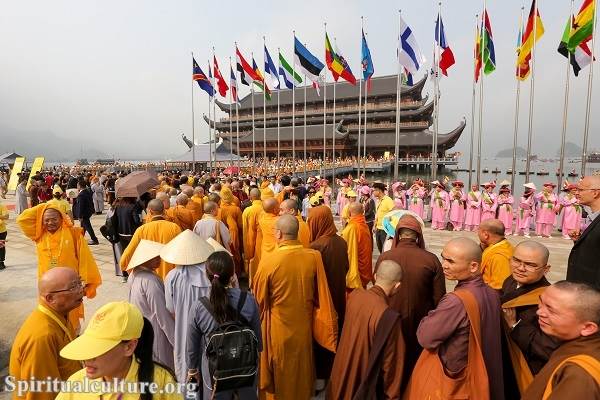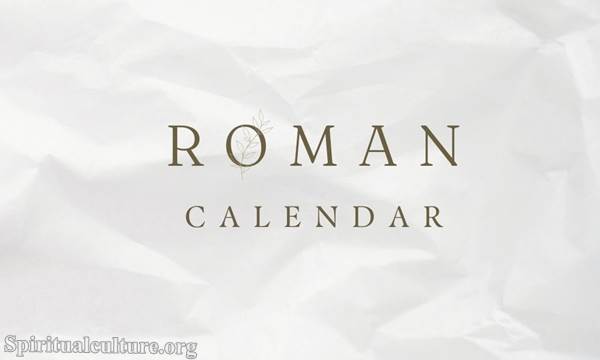Rituals have always whispered to something ancient within us. Whether it’s the lighting of a candle, the washing of hands, the bowing of a head, or the breaking of bread — every faith tradition carries its sacred gestures, passed down through time like holy threads in a spiritual tapestry. But why do they matter? Why have rituals remained central to religious life, even as the world changes?
As Spiritual Culture, we invite you to explore this profound question — not simply as an intellectual inquiry, but as a spiritual reflection. Rituals are more than religious customs or cultural habits. They are language without words, windows into the sacred, and rhythms that train the heart to listen. In this article, we will explore the deeper meaning of rituals in religion: their roots, their power, their role in human life, and how they continue to shape not just belief, but being.
The Human Need for Sacred Structure
Rituals as Anchors in Time
Human beings crave rhythm. Just as the body responds to the cycles of day and night, the soul responds to patterns of meaning. Rituals provide a structure that marks time as sacred — transforming ordinary moments into opportunities for divine encounter. Whether it’s the Jewish Shabbat, the Christian Eucharist, or the Islamic Salah, ritual breaks the flow of daily life and reorients us toward the eternal.
“To everything there is a season, and a time for every purpose under heaven.”
— Ecclesiastes 3:1
In a chaotic world, ritual says: Here, there is order. Here, time is holy. It teaches us that not all time is the same — that some moments are set apart, consecrated, and rich with the presence of the divine.
The Body Learns What the Soul Believes
Belief is often thought of as an internal thing — an idea, a conviction, a truth we hold in the mind. But rituals remind us that belief also lives in the body. The posture of prayer, the act of kneeling, the fasting of the mouth — these are physical acts that teach spiritual realities. Repetition deepens formation. As we move, so we are moved.
A bowed head teaches humility.
An open palm teaches surrender.
A lit candle teaches hope.
The body remembers what the heart might forget. In this way, ritual is not performance — it is participation.
Rituals as Bridges to the Transcendent
The Seen and the Unseen Meet
Rituals are visible signs of invisible truths. They help us step into a mystery we cannot fully explain. Baptism, for example, is more than water — it is death and rebirth. Communion is more than bread — it is presence, sacrifice, and communion with the divine. Puja is more than offering — it is a meeting of the finite with the infinite.
“This is my body, given for you.”
— Luke 22:19
Ritual allows the transcendent to touch the tangible. It draws heaven into earth. It helps us know God not just through theology, but through taste, touch, sound, and silence.
Symbol as Sacred Language
Rituals rely on symbols — and symbols, when held in reverence, become vessels of truth. Water, fire, oil, incense, light — these are elements that speak to the soul. Their meanings are not always logical, but they are deeply spiritual.
The Hindu Agni (fire) purifies.
The Buddhist lotus rises from mud into beauty.
The Christian cross turns death into life.
The Jewish mezuzah marks a home with covenant.
The Islamic ablution (wudu) purifies before prayer.
Symbol is the language of the sacred. And ritual is how we learn to speak it.
The Role of Ritual in Community
Shared Practice Builds Identity
Ritual is not only personal — it is communal. It binds people together across generations. When a child lights the same Hanukkah candle as their ancestors, when a couple is blessed in marriage before the church, when a congregation fasts during Ramadan — they are not alone. They are part of something bigger.
“For where two or three gather in my name, there am I with them.”
— Matthew 18:20
Ritual gives form to faith. It is the grammar of a community’s belief. It allows diverse individuals to express one shared devotion, one sacred rhythm.
Ritual as Memory Keeper
Religions are rooted in memory. Rituals keep that memory alive. The Jewish Passover remembers liberation from Egypt. The Christian Eucharist remembers the Last Supper. The Islamic Hajj remembers the story of Abraham and his family. These are not distant events — they are made present through ritual.
Memory is not just recall. In religion, memory is re-living.
By doing what was done, we become part of what happened. Rituals connect past to present, and present to eternity.
The Transformative Power of Repetition
Formation Through Practice
In a world obsessed with novelty, ritual dares to repeat. It repeats not to bore, but to shape. Spiritual disciplines — whether it is daily prayer, chanting a mantra, meditating, or receiving a sacrament — slowly change us. They refine the heart. They tune the soul to God.
Repetition is not stagnation. It is sanctification.
The more often we kneel, the more easily we forgive. The more often we fast, the more we remember our hunger for God. The more we light the lamp, the more we become light.
The Inner Journey Made Visible
Ritual externalizes the internal. It gives expression to what we may struggle to articulate. Grief, gratitude, longing, joy — these are vast oceans inside us. Through ritual, we pour them out. Lighting incense may be how we say goodbye. Laying flowers may be how we say thank you. Touching the forehead to the ground may be how we say, You are God, and I am not.
“Let everything that has breath praise the Lord.”
— Psalm 150:6
Ritual gives the soul its voice.
When Ritual Becomes Empty
The Danger of Habit Without Heart
While rituals can be deeply transformative, they can also become hollow. If performed without awareness, they risk becoming mechanical. The prophet Isaiah lamented this:
“These people come near to me with their mouth and honor me with their lips, but their hearts are far from me.”
— Isaiah 29:13
Ritual must be more than rote. Its power lies not only in the act, but in the intention. A prayer mumbled without thought is not the same as a prayer whispered from the soul. Authentic ritual is not about perfection, but presence.
Rediscovering the Meaning
When ritual loses its meaning, the call is not to abandon it — but to reenter it. To ask again: What does this mean? Why do I do this? What is being said, beyond words?
Many spiritual traditions include rituals of renewal — confession, purification, silence — that invite us to begin again. To make old rituals new, by entering them with awakened hearts.
The Universality of Ritual
Across Religions, a Common Thread
Though the rituals differ in form, their essence often echoes across traditions:
- Christianity: The Eucharist, baptism, the sign of the cross
- Islam: Daily prayers (Salah), fasting in Ramadan, the pilgrimage of Hajj
- Judaism: Bar/Bat Mitzvah, Passover Seder, lighting Shabbat candles
- Hinduism: Puja, Aarti, sacred thread ceremony
- Buddhism: Meditation, chanting, prostration
- Indigenous Traditions: Dance, drumming, sacred smoke, seasonal ceremonies
These are different expressions of the same yearning — to draw close to the sacred, to remember what matters, to live in harmony with the divine order.
Even the Secular Soul Has Ritual
And even outside religion, humans ritualize. Birthdays, weddings, funerals, national holidays — these mark time, memory, meaning. The secular heart still seeks ritual. We light candles at vigils, we pause for silence in tragedy, we wear certain clothes to honor moments. The ritual impulse is human, not just religious.
Reflect and Reimagine
Rituals are not relics. They are reminders. They are not empty gestures, but living patterns. In a distracted age, ritual calls us to attention. In a fragmented world, ritual calls us to unity. In a shallow culture, ritual calls us to depth.
If you’ve grown weary of ritual, pause. Ask again: What is this gesture asking of me? What is it opening within me? What sacred rhythm might my soul need today?
And if you’ve never practiced ritual, begin small. Light a candle in silence. Repeat a sacred word. Offer a simple act with sacred intention. Let your body teach your soul to listen.
“Be still, and know that I am God.”
— Psalm 46:10
Ritual is not the end — it is the doorway. Through it, we encounter mystery, meaning, and the ever-present love of the divine.
— With reverence and rhythm,
Spiritual Culture


